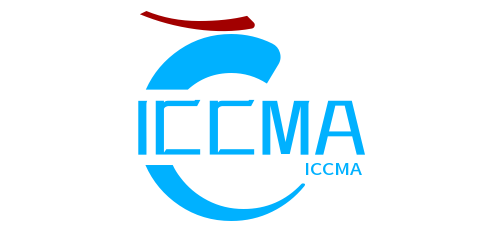
Session 2: Optimization-Based Approaches for Electrically Driven Machines: Design, Control and Deployment
Organizer(s)
Chair:
Associate Professor Stijn Derammelaere, Department of Electromechanics, Cosys-Lab, University of Antwerp, Antwerp, Belgium
Abstract
Electrically driven machines play a pivotal role across a wide range of industries, powering systems as diverse as weaving looms, metalworking machines, medical apparatus, industrial robots, and collaborative robots (cobots). As demands for energy efficiency, precision, and productivity continue to grow, optimizing the design and control of these machines becomes increasingly critical. This special track focuses on optimization-based approaches that enhance the performance, reliability, and energy efficiency of such machines throughout their lifecycle—from design to real-world deployment.
The track welcomes contributions addressing topics such as motion and motor control, optimal structural and system design, motion planning, and energy-saving strategies for complex electromechanical systems. Emphasis is placed on both model-based and data-driven optimization techniques, advanced simulation and design methodologies, and integrated approaches that link mechanical, electrical, and control subsystems.
By bringing together perspectives from control engineering, mechatronics, mechanics, and computer-aided design, this track aims to foster interdisciplinary collaboration and knowledge exchange. Contributions that bridge theory and practice, especially those validated through industrial case studies or experimental setups, are highly encouraged. The ultimate goal is to accelerate the development of intelligent, efficient, and adaptable machines for a wide spectrum of applications in modern automated systems.
Topics
- Optimization-based control of electrically driven machines (e.g. motor control, motion control strategies, adaptive control)
- Energy-efficient design and operation (e.g. minimization of energy consumption, regenerative strategies, eco-design)
- Motion planning for industrial and collaborative robots (e.g. trajectory optimization, safe planning for cobots, dynamic environments)
- Optimal structural and system design (e.g. lightweight mechanisms, stiffness optimization, multi-objective design)
- Model-based and data-driven optimization techniques (e.g. physics-based modeling, machine learning-based tuning, hybrid approaches)
- Computer-aided engineering and simulation tools (e.g. co-simulation, digital twins, integrated design environments)
- Mechanical drive system optimization (e.g. drivetrain modeling, gear design, backlash reduction)
- Integration of control and mechanical design (e.g. mechatronic co-design, hardware-software interaction)
- Experimental validation and benchmarking (e.g. test benches, industrial case studies, performance metrics)
- Applications in diverse sectors (e.g. weaving looms, metalworking machines, medical devices, robots, cobots)
- Smart deployment strategies for automated systems (e.g. commissioning, reconfigurable systems, fault tolerance)
More information: https://www.iccma.org/topics.html
